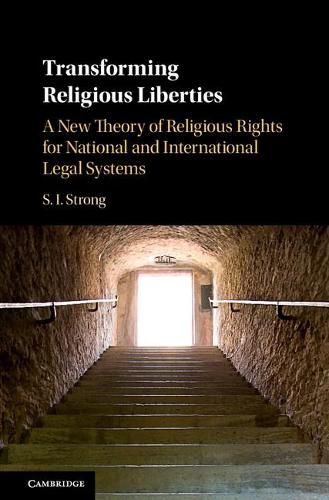Readings Newsletter
Become a Readings Member to make your shopping experience even easier.
Sign in or sign up for free!
You’re not far away from qualifying for FREE standard shipping within Australia
You’ve qualified for FREE standard shipping within Australia
The cart is loading…






Religious liberties are at the centre of many debates on how liberal democratic societies can accommodate diversity. This book considers the interaction between law and religion from a broad international, comparative and jurisprudential perspective and proposes a new theoretical approach to religious liberty that both transcends and transforms current approaches to religious rights. Not only does the discussion draw on the work of a range of legal and political philosophers including John Rawls, Ronald Dworkin and John Finnis, it also tests the validity of the various proposals against actual ‘hard cases’ derived from multiple jurisdictions. In so doing, the analysis overcomes longstanding challenges to existing religious rights regimes and identifies a new theoretical paradigm that specifically addresses the challenges associated with religiously pluralist societies. Through this type of interdisciplinary analysis, the book identifies a religio-legal system that both religious and non-religious people can support.
$9.00 standard shipping within Australia
FREE standard shipping within Australia for orders over $100.00
Express & International shipping calculated at checkout
Religious liberties are at the centre of many debates on how liberal democratic societies can accommodate diversity. This book considers the interaction between law and religion from a broad international, comparative and jurisprudential perspective and proposes a new theoretical approach to religious liberty that both transcends and transforms current approaches to religious rights. Not only does the discussion draw on the work of a range of legal and political philosophers including John Rawls, Ronald Dworkin and John Finnis, it also tests the validity of the various proposals against actual ‘hard cases’ derived from multiple jurisdictions. In so doing, the analysis overcomes longstanding challenges to existing religious rights regimes and identifies a new theoretical paradigm that specifically addresses the challenges associated with religiously pluralist societies. Through this type of interdisciplinary analysis, the book identifies a religio-legal system that both religious and non-religious people can support.